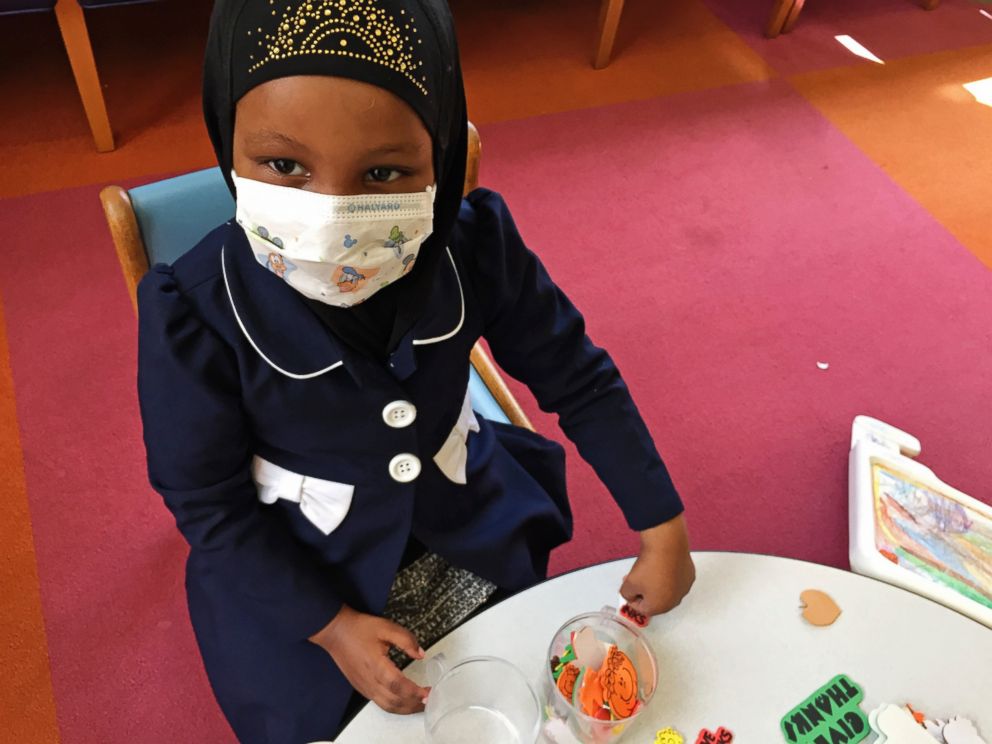
5th June 2025 admin Category :
Doctor seeks to ease vaccine fears in Somali-American community amid Minnesota measles outbreak
Weeks into Minneapolis’ worst measles outbreak in more than 25 years, public health experts are still struggling to get some families in the Somali community to vaccinate their children.
Currently, 51 people have been infected with measles in Minnesota, 46 of whom are Somali-Americans. For years, public health officials have been trying to increase the vaccination rates in the Somali community, which dropped precipitously in the mid 2000’s over fears about the now-debunked theory that vaccines were linked with autism.
In 2008, the Minnesota Department of Health found that Somali children in Minneapolis were more likely to take part in services for autistic children, although it was unclear if that was because more children in the community had the disorder or because there was better outreach to the community.

Dr. Mahab Ururshe, a pediatrician at Park Nicollet Methodist Hospital in St. Louis Park, Minnesota, is originally from Somalia and says he still sees many parents afraid of vaccines, even though numerous studies have shown no link between autism and vaccines.
The parents say, “I know measles, I have had it and my mom had it — better to have measles than autism,” Ururshe told ABC News.
In order to convince some parents that vaccines are safe, Ururshe has spent long periods of time explaining that studies have found no link between vaccines and autism. He also has to point out that the disease can be deadly and that, in Somalia, there was no accurate data compiled about measles complications.
Severe complications from measles include pneumonia and inflammation of the brain and a condition called subacute sclerosing panencephalitis (SSPE) that is fatal and more common in infants, according to the Infectious Diseases Society of America.
The U.S. Centers for Disease Control and Prevention (CDC) estimates one to two of every 1,000 infected children dies from the disease.
Ururshe also tells parents that despite dramatically lowered rates of vaccination in the Somali community in recent years, rates of autism have continued to rise. While parents often believe him, Ururshe said some remain too frightened to act.
“They say ‘OK, I know they think it doesn’t cause it,'” Ururshe recalled. “[But] I cannot gamble on my son or daughter.'”
While the overall vaccination compliance rate for Minnesota kindergartners is around 90 percent, it is only about 40 percent in the Somali community, according to Kris Ehresmann, director for infectious disease at the Minnesota Department of Health. Ehresmann said with such low levels of vaccination, public health officials have been worried about an outbreak for some time.
“We’ve known it’s going to be a matter of time before something happens,” she told ABC News in an earlier interview.
Ururshe said he’s seen more and more parents are coming in, asking for their children to be vaccinated. Some other parents come in worried, but are willing to consider vaccination.
That last group “is undecided and confused” Ururshe said, explaining that some parents waffle between accepting the vaccine and fearing it.
“They decide to come in the morning and in the morning they’ve changed their minds,” he said.
Ururshe said it’s an asset to be from Somalia when talking to these patients, since he understands the culture and language. When some parents argue that autism only happened when they arrived in the U.S., Urushe has answered that there wasn’t a vocabulary to identify the same condition in Somalia.
“There is more trust between the parents and a Somali-speaking or Somali doctor than non-Somalis,” he said. “They say ‘OK, I trust you, should I give my son or daughter [the vaccine]?”
At least 11 patients have been hospitalized during this most recent outbreak, which is the largest since 1991. The measles virus is spread through infected mucus and is often transmitted to others through coughing or sneezing, but can also live in infected airspace for up to 2 hours, according to the CDC. It is a highly contagious diseases, able to infect 90 percent of unimmunized people who are exposed to it, the agency says.







